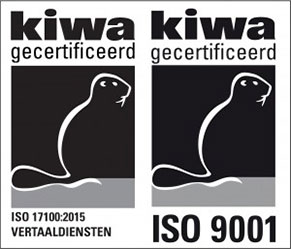Japanese translation agency
- Only experts in the Japanese language
- Get the best Japanese translations….
 Japanese translation agency
Japanese translation agency
Japanese, the official language of Japan, is spoken by 127 million people. The language is part of its own language group along with that of the RiuKiu islands. Relationships with other languages have never been proven. Japanese grammar does have a certain similarity to that of the Altaic language family, which gives speakers of Turkish languages an advantage when learning Japanese. Those grammatical similarities have led people to suspect an early split from the Altaic language groups. There are also theories that suggest a very distant relationship to Korean.
Nowadays, many loanwords find their way into the Japanese language. Try saying these Japanese words aloud: ‘hanbaagu’ and ‘hanbaagaa’. No, it does not mean ‘hand baggage’, but ‘hamburger’. The first word stands for hamburger meat, the second represents the entire hamburger.
Many Chinese words also found their way into Japanese, and from the 16th and 17th centuries, Dutch loanwords also pop up in Japanese. The trade relations between the United East Indian Company and Japan have enriched its vocabulary with words like kōhī (coffee), kokku (cook), bīru (beer), dansu (dance), and the not immediately recognisable ‘otenba’, which comes from ‘untameable’ and refers to ‘wild girls’. Evidently, the Dutch and Japanese have a cheerful history.
The Japanese script has a few peculiarities; one of which is the fact that sentences are written as if they were a single word. Furthermore, Japanese does not distinguish between singular and plural, nor does it have gender forms. It also often omits topics from, sentences, which can lead to great confusion for those who did not follow a conversation from the beginning. Conjugation is also not done in Japan; tenses are indicated differently. Verbs are placed all the way at the endo of the sentence. If you still have trouble forming an image of Japanese after this brief linguistic introduction, this is very understandable.
The above examples clearly show that translation is no simple task. And even if a translation is textually correct, the work does not end; differences between cultures are just as great as those between languages. That is why we like working with so-called in-country translators; in this case, Japanese translators who live and work in Japan and are native speakers of Japanese. After all, they have the most direct contact with living phenomena like language and culture and are able to optimally align translation with the culture of the target audience.
Our translation agency is in possession of the highest achievable European quality standards for translation agencies: ISO 9001 and ISO 17100. This means the entire translation process and the translations are subject to strict standards. Standards that are continuously monitored. But that is not enough for us; we also give you a lowest price guarantee and our 100% satisfaction guarantee. Top quality at the lowest price, and without risks. On this independent website, you can find out what our clients think of that.
You can request a free quote for your Japanese translation using the button below. You will receive a customised quote within 30 minutes.
15.000+ clients have already placed their trust in us

Translation Agency has the highest certificates for translation agencies: ISO 9001:2015 and ISO 17100:2015. Top quality and service are always our number one priority.


Translation Agency is a member of the VViN and EUATC; Organisations of translation agencies that work together to optimise quality and service.
